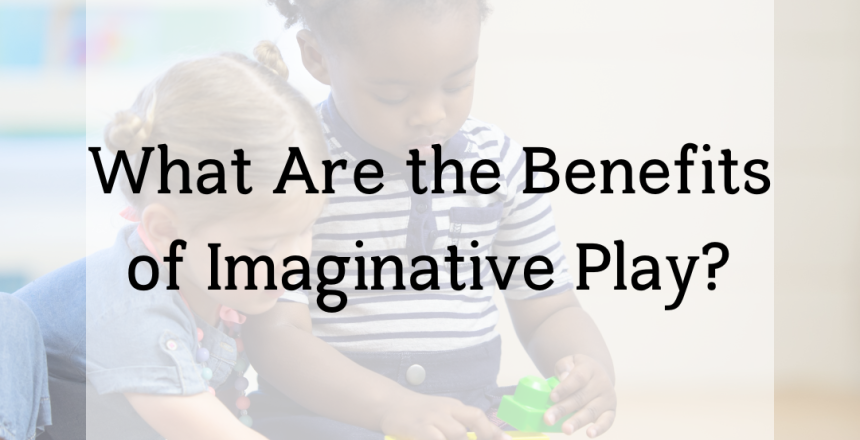Imaginative play is how your child makes sense of the world around him or her through role-playing. During imaginative play, a child may pretend to visit the moon with a pile of sand on the beach serving as the spaceship or turn a box into a castle and reign over the world from within the confines of the cardboard. Possibilities with this kind of play are literally limited only by the child’s imagination.
Healthline.com shares a few definitions of this term, including one from the American Academy of Pediatrics (AAP) that notes how children who are playing this way won’t typically have specific goals in mind. Instead, they’re experiencing “joyful discovery.” As the AAP also notes, this doesn’t mean that these activities are meaningless play. Instead, children are uncovering the process of learning.
Here are specific benefits of imaginative play
Language Development
Scholastic.com refers to this concept as “pretend play” and notes how participating in it allows children to use words they’ve learned from parents and teachers. Or they can make up their own words! No matter which route they take, this gives them a sense of the power of language as they create stories—and, as they make a connection between a word that’s said out loud and one written down, this skill paves the way for reading.
Creativity
An advanced occupational therapist shares how imaginative play creates a safe space for youngsters to participate in scenes that they can’t yet in real life. They might put construction paper in a small box and pretend they’re Mommy or Daddy, heading to the office. They can take a cup and spoon and discuss whatever they’d like over a cup of coffee with a friend (real or imaginary), just like they see grownups do.
Social Development
Through pretend play, children can learn about building relationships and their social boundaries. Continuing our example, let’s say that two children are playing with cups and spoons. One is fine with coffee like Mom drinks but the other wants tea like Grandpa.
Through this scenario, the children can negotiate and learn how to relate with one another in safe ways. Then, when discussions about real scenarios arise (who gets the window seat?), children will have gained negotiating experience.
Independence
When creating their own stories, children are independently coming up with ways to entertain themselves. Children tend to make their own choices during pretend play, navigating their own way through likes and dislikes. This fosters independence, preparing them for decisions they’ll need to make as they grow and mature.
Encouraging Imaginative Play
By its nature, this type of play develops within the child’s brain, but one parenting site recommends ways to help it expand. For example, set aside an area for imaginative play and perhaps suggest everyday objects for your child to envision in new ways. Measuring cups could transform into test tubes in a mad scientist’s laboratory while stuffed animals could roar into life as prehistoric dinosaurs—with your child playing a key role in the stories that unfold.
In short, embrace, encourage, and even—if your child approves!—participate in pretend play scenarios and then reap the benefits: enhanced language development, creativity, social development, independence, and more.

